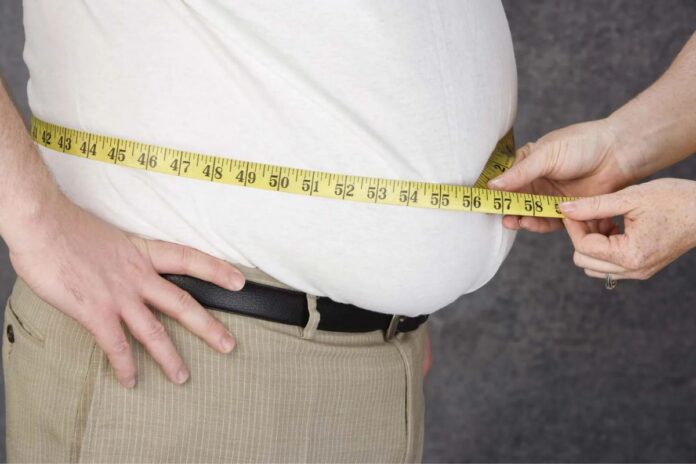Vitamin D, often known as the “sunshine vitamin,” is a critical nutrient that serves many roles in the body, from maintaining strong bones to boosting immunity and even affecting mood regulation. Given its broad impact on health, there has been much discussion and debate about its relationship with obesity. Is vitamin D deficiency a cause of obesity, or are the two simply correlated? Let’s take a deeper dive into the relationship between vitamin D deficiency and obesity, dispelling some common myths and uncovering the facts.
Myth: Vitamin D Deficiency Causes Obesity
Fact: While vitamin D deficiency is linked to obesity, it is important to clarify that it does not directly cause obesity. Obesity is a complex condition influenced by various factors, including genetics, lifestyle choices like diet and exercise, and hormonal imbalances. Vitamin D deficiency is more likely to be a consequence of obesity rather than a direct cause.
Individuals with obesity often have excess fat in their bodies, which can trap vitamin D in fat cells, making it less available for circulation in the bloodstream where it is needed for various bodily functions. This reduced availability can lead to lower levels of vitamin D in the blood. However, the fact that obese individuals often have low vitamin D does not mean that a deficiency directly leads to weight gain. Rather, it highlights how body fat can alter vitamin D’s availability and impact overall health.
Myth: People with Obesity Cannot Absorb Vitamin D
Fact: It’s not that people with obesity cannot absorb vitamin D; the issue lies in how vitamin D is distributed and stored in the body. Vitamin D is a fat-soluble vitamin, meaning it is stored in fat cells. In individuals with higher body fat percentages, more vitamin D becomes sequestered in these fat cells, making it less available in the bloodstream for use by the body. This phenomenon means that people with obesity often require higher doses of vitamin D to reach and maintain optimal levels in their blood. It’s important to note that absorption occurs in the intestines, but once vitamin D is absorbed, it can get “trapped” in fat tissue, reducing its overall bioavailability.
Myth: Obese Individuals Don’t Need to Worry About Vitamin D Deficiency
Fact: On the contrary, people with obesity should be more vigilant about their vitamin D levels. The excess fat in the body leads to a higher likelihood of vitamin D deficiency due to the way the vitamin is stored and becomes less accessible for the body’s needs. Low vitamin D levels can contribute to other health issues such as weak bones, compromised immune function, and mood disturbances—all of which can have a significant impact on overall well-being.
Myth: Taking Vitamin D Supplements Will Automatically Help With Weight Loss
Fact: Vitamin D supplements can certainly help address a deficiency, but they are not a magical solution for weight loss. Taking vitamin D alone will not lead to a reduction in body weight. To achieve weight loss, a combination of healthy eating habits, regular physical activity, and overall weight management strategies is crucial. Vitamin D, however, may support these efforts by promoting better mood and energy levels, which could make sticking to a weight-loss regimen easier. Still, vitamin D supplementation should be seen as a supportive measure rather than a primary solution for weight loss.
Myth: Obesity Has No Impact on Vitamin D Metabolism
Fact: Obesity does, in fact, impact vitamin D metabolism. Individuals with excess body fat can experience altered vitamin D metabolism due to changes in how the nutrient is processed by the liver and other tissues. For instance, fatty liver, a condition common in people with obesity, can impair the liver’s ability to convert vitamin D into its active form, calcitriol. This active form of vitamin D is essential for many bodily processes, including calcium absorption and bone health. Furthermore, increased muscle mass in some individuals can also bind vitamin D, further decreasing its bioavailability for use by the body.
Myth: Obesity Will Always Lead to Vitamin D Deficiency
Fact: It is true that obesity increases the risk of vitamin D deficiency, but it does not guarantee it. Not every person with obesity will have low vitamin D levels. Factors like sun exposure, diet, and overall health play important roles in determining someone’s vitamin D status. Spending time outdoors, consuming foods rich in vitamin D (like fatty fish, egg yolks, and fortified dairy products), and taking supplements as needed can help individuals with obesity maintain adequate vitamin D levels.
Vitamin D and Obesity
The connection between vitamin D and obesity is complex. While there is a clear association between the two, it is incorrect to assume that a lack of vitamin D causes obesity. Rather, the excess body fat found in individuals with obesity can lead to a reduction in vitamin D availability, making deficiency more likely. Maintaining adequate vitamin D levels is important for everyone, but especially for those with obesity, as it can support overall health and wellness, including bone strength and immune function.
For individuals concerned about their vitamin D levels, consulting with a healthcare professional is advisable. They may recommend a blood test to determine your vitamin D status and suggest appropriate supplementation if necessary. Alongside this, adopting a balanced diet, engaging in regular physical activity, and spending time in the sun can all contribute to better health outcomes and help maintain optimal vitamin D levels—regardless of body weight.

